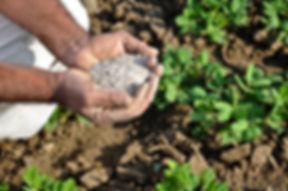
Partner history:
“The Farm was started in 2007 by Dr. Michelle Schroeder-Moreno, (a) professor in the Crops Science department of NC State. It was started to really support some of her classes that needed more hands on experience out in the field. Since then, we have grown. We have added more production area and a hoop house, and this year we have added a new post-harvest area.” -Alison Reeves, Farm Manager
Challenges faced by farm:
Size: Being a small scale farm, there are many limitations on their market
Diversity: With over 50 annual plantings, and each requiring different tools, nutrition, pest control, etc., the farm must constantly be on top of their planning game.
Pest control: Following the organic certification general requirements, the farm cannot use synthetic pesticide and must fight pests from the bottom up.
Photo: D. Sammataro
Service project history:
Although there are many ways to get involved on the farm, from workshops, clubs and volunteering to internships and possible jobs, there is always a need for more help. The farm requires many hours of manual labor, and they are not getting as much help as they would like. Our job was to get the Agroecology Education Farm name out there, and remind students of the great opportunities that can await them on the farm. We also created a sign to welcome explorers finding their way onto the farm from Yates Mill.
Sustainability Issue: Our project is to promote all that the Agroecology Farm has to offer. The goal of the Agroecology Education Farm is to enforce sustainable agriculture education by giving diverse experiential learning opportunities for NCSU students, faculty and the local community. Some problems with the farm include soil fertility, soil management, and pest. Organic farming is beneficial for many reasons, such as you know where your food is coming from and you are living in a sustainable way.
Going Forward: The Agroecology Farm is ever growing and always needs more hands on deck. There are many ways for students to get involved, from volunteering on the 1st and 3rd Saturdays of each month from 10am - 1pm, to contacting Alison Reeves about internships and employment. There are also many student organizations that meet on the farm, that can be a great way to get involved and find those with similar interests as yourself. All and all, going forward the farm needs more recognition and help from everyone who can lend a hand.
3.
Partner History
Challenges, Service Project History, Challenges and going forward
